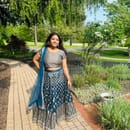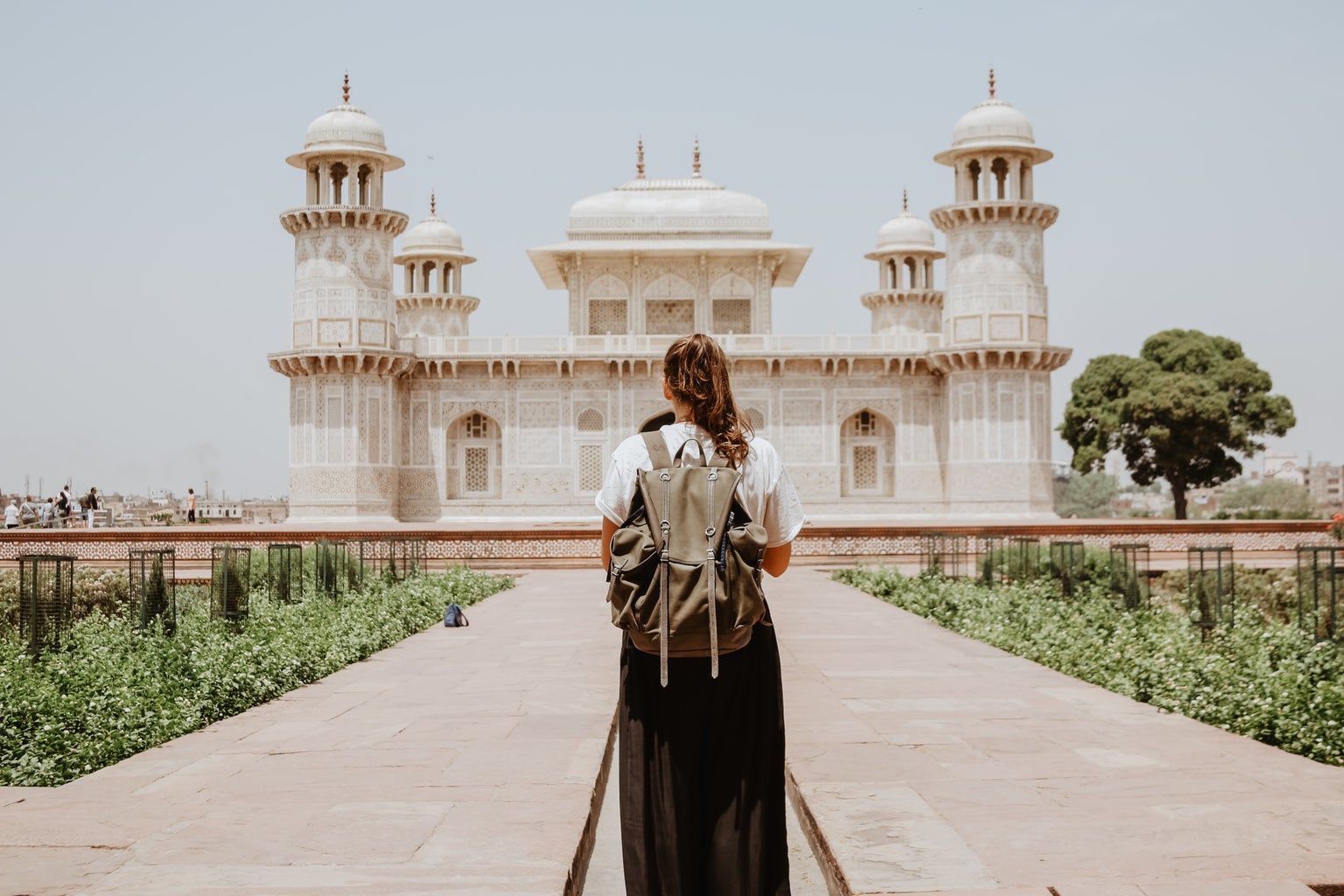By: Shilpi Mohanty
My life began being carried over my mothers shoulder looking at steel all around me along with flashing billboards with words and hundreds of people walking around with suitcases. I moved to Michigan with my family from India when I was 2 years old. Since I moved to Michigan so early, I have no memories of India. On the other hand, all my memories are in Michigan from the first day of school to graduating high school. I went to India every couple years to visit family and stay in touch with my roots. However, I never felt like I belonged in either India or Michigan. I felt like an outcast most of my life.
My journey of learning how to navigate my two cultures began with learning two languages at once. Not only did I have to learn English, I also had to learn my parent’s mother tongue, Odia, which originates from Odisha, India. Both languages are so distinct it took me a while to be able to speak efficiently in both languages, which led to me getting harassed in Kindergarten. Eventually, through practice with my parents I learned to separate the languages in my head. At school, I spoke English at school and Odia at home to communicate with my family.
I thought I was fluent till I went back to visit Odisha, where I would constantly hear about how my grammar was wrong or sounded too American. It was also about how disappointing it was that I did not know as many rituals and traditions. I celebrated them but I did not know the history behind it. I would get lessons and celebrate with my extended family but I never felt like I belonged. I never lived there to truly get the experience, I’d experience it through stories. I tried to be as Indian as possible but it never felt enough.
I’d express my culture in Michigan through bringing Indian dishes, celebrating holidays and wearing henna designs on my arm but I got singled out. I’d get weird looks from people in school about my arms being decorated with henna. Henna was only there for special occasions like weddings but eventually I’d stop getting henna. I began swapping out my Indian dishes for American ones so I don’t get questioned about my meals. I’d get asked about my mother tongue too and then get made fun of as Odia is not a well known language so people would think I’m making it up or saying oreo. Day by day I’d start feeling ashamed of my culture. I felt like a jester just standing out of the crowd for entertainment.
I distance myself from my Indian culture. I found brown friends who did the same. We avoided wearing ethnic wear and just focused on celebrating American culture. We never spoke in our mother tongues unless we had to for our parents. We felt normal just worrying about school drama. We started festering internalized hate for brown girls who showed more knowledge or incorporated Indian aspects in their outfits and called them lame. We strayed as far as possible and felt a sense of normal.
However, things began to change when I got social media. When I got Instagram I saw so many celebrities in Indian wear and they looked absolutely stunning. I saw so many people proudly post about wearing Indian wear and feel happy celebrating traditions with their family. I want to feel content. It made me realize how distant I felt from my family seeing so much brown representation. I was there but not in spirit as I would feel like I was dragged to celebrations of our culture.
This led to me to begin my journey to appreciate my Indian heritage. I decided to fake it till I made it. I thought acting confident would help me feel happy about being Indian like those girls in social media. I began posting with me in my Indian clothes.I began bringing in Indian food again for lunch. I decided to reconnect with my roots through speaking more Odia to my parents and my extended family so I don’t forget it. I felt content. It felt like I dropped my masquerade mask.
It is still a journey getting rid of the internalized hate. At points those thoughts come up but I push them away. I’ve accepted that I will never reach standards from my family back home and just being whitewashed here in Michigan. My priority is being happy and celebrating both. Having two cultures makes me unique and gets the best of both worlds. I love educating people about my culture and hope to pass my culture down. Today, I’ve embraced my role as an ‘outcast’ and all parts of me that makes me ‘different.’ Instead of forcing myself to fit in a box and blend into the background by being like everybody else, I am finally proudly living life as my authentic self and being at peace with who I am.



